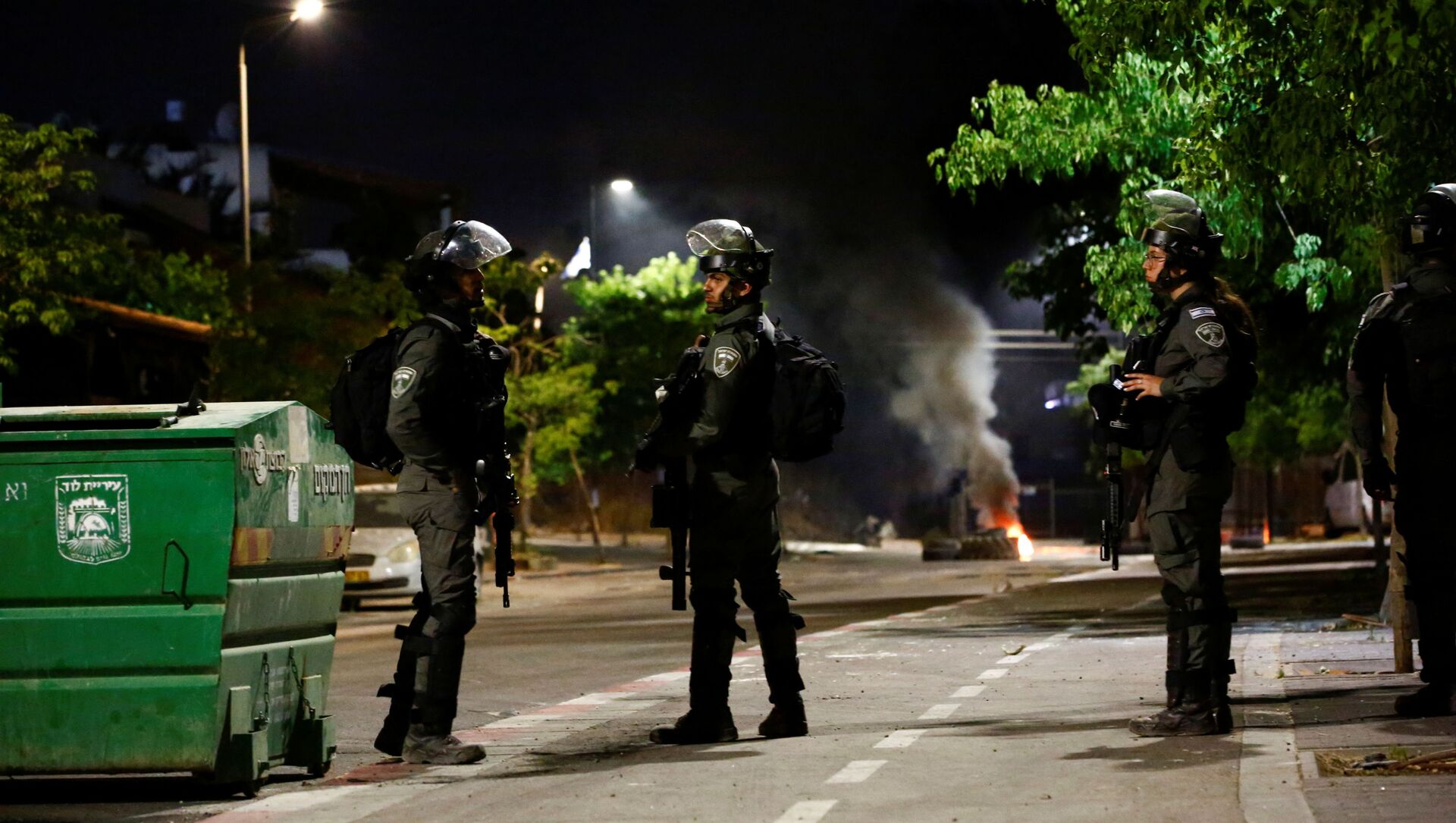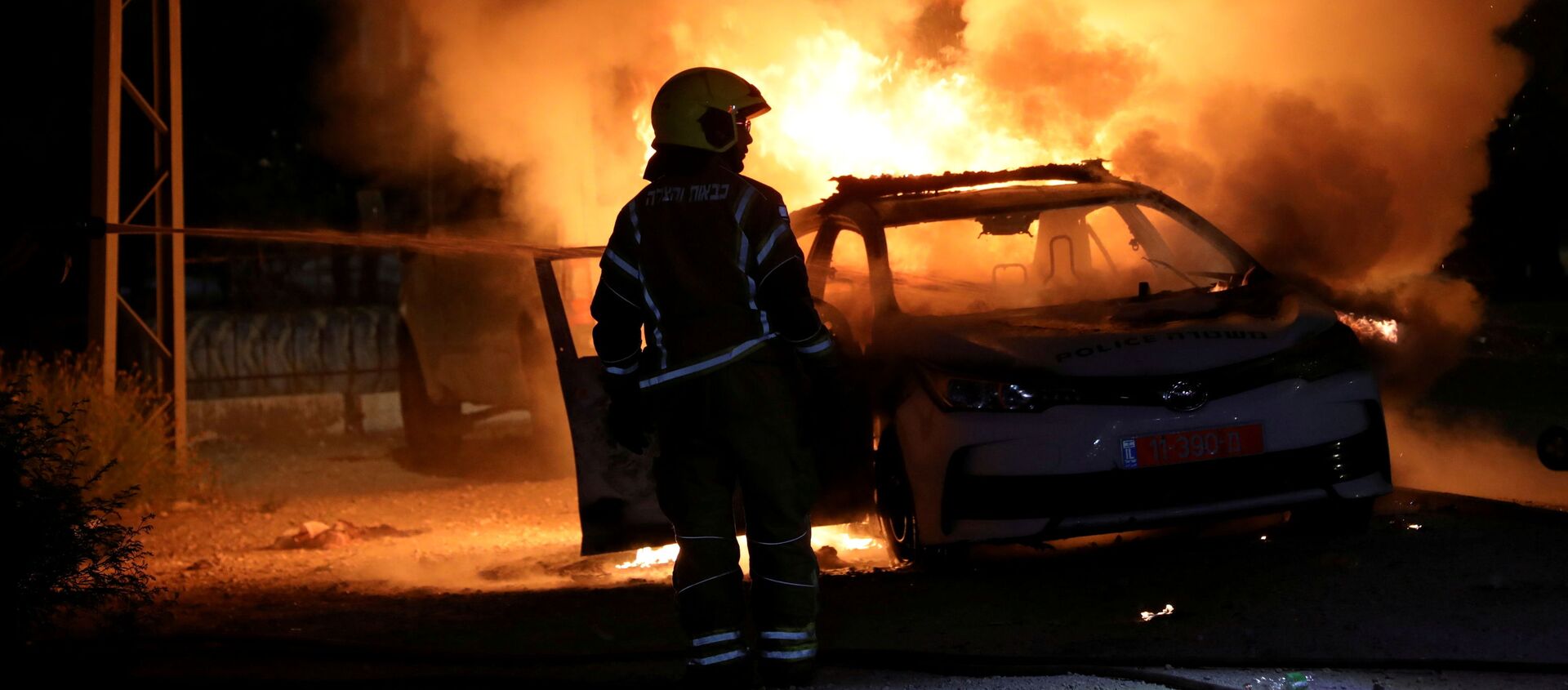Israel's Guardian of the Walls operation in Gaza might be over, but the country is going through a different ordeal, which may prove to be even more explosive than the eleven days in May that saw hostilities between the Jewish state and Hamas, an Islamist group that controls the Gaza Strip.
On Sunday, it was reported that a Jewish man and his son were attacked by an Arab in Tel Aviv Jaffa, a city with a mixed Jewish and Arab population; the assailant told the two "to get out" of that land as "they didn't belong there".
That has not been the only case. Recent weeks have seen a surge in violence in Israel's mixed cities.
In the northern city of Haifa, Arabs have been attacking Jewish passersby, damaging their cars, setting busses on fire and smashing windows. Jews have been following suit, assaulting individuals, boycotting Arab products and staging rallies against Muslims.
Violence has also been registered in other parts of the country, including in Akko, Lod, Jerusalem and many other locations, where individuals have been lynched and where synagogues have been set on fire.
Israeli media outlets have placed the blame for the surge in violence on Israel's operation in the Strip, where more than 250 Gazans lost their lives. However, Dr. Anat Berko, a criminologist and an expert on Arab affairs, says the problem's roots run much deeper.
"What we have here is a clash of civilisations and cultures. On the one hand, their traditional norms are dissolving. On the other, they are incapable of adjusting themselves to the liberal norms, and it creates a conflict of identity and adds to their alienation."
Incitement of Hatred
However, it is far from being the only reason for the tensions that are brewing between the Jews and the Arabs.
"In the past, their older generation had an impact. Now, in the era of social media networks, their influence is gone. And it has become easier to brainwash them or introduce them to violent content."
Social media networks have long been accused of fuelling incitement and violence. A recent example of this was the series of events that led up to the Guardian of the Walls operation, where Arabs attacked Jews in Jerusalem and posted their assaults on Tik Tok and other platforms.
The Palestinian education system has also been blamed for the mess, and multiple reports suggested that Palestinian kindergartens and schools were part of a well-oiled propaganda machine and that they have been a useful tool for spreading hatred.
Israeli Arab students do not study with Palestinian textbooks, but Israeli experts believe that the notions of a collective struggle against Israel, which is presented as an occupying force, often influence the minds of youngsters.
So does the preaching of some of their religious leaders. In the central city of Lod, for example, a local imam was reportedly inciting young Muslims against Jews. Similar accusations have also been levelled at other clerics, including in the rather liberal city of Nazareth and the more traditional town of Kfar Kara.
Socio-Economic Hardships
Arabs often reason their incitement by pinning the blame on Israel and its oppression of Palestinians. They also accuse the Jewish state of discrimination and of not doing enough to integrate its minorities, which make up some 20 percent of the total population.
In many ways, their accusations make sense. Although the Netanyahu government has invested billions of dollars into Arab society, many problems have remained unresolved.
Such was the case with raging unemployment, the illegal arms that have been floating around, and the issue of violence that initially targeted Arabs only. Now it is taking a toll in Jewish lives too.
Often times, the police was scared to enter areas known for their crime. They were also afraid to shoot, fearing prosecution, and now, these problems have magnified themselves.
"The state needs to provide all its citizens, whether Jews or Arabs, with a sense of security. But police are afraid to do their job and the result is that there is a sense of impunity and the feeling that they can do whatever they like."
While a member of the Israeli parliament, the Knesset, Berko attempted to convince other parliamentarians of the need to untie the hands of the security forces, let them do their job and enable them to shoot without being afraid of persecution.
That, however, was not always met with understanding, primarily because there were also those, says Berko, who "associated themselves with the enemy".
Over the years, the Israeli press has registered a large number of incidents, where parliamentarians from Arab parties incited hatred against Israel. They were caught visiting Palestinian prisoners accused of terrorism activity and some have even smuggled in mobile phones to assist them.
For Berko, the fact that the Knesset harbours such politicians doesn't make any sense. Neither does it make sense for her that Israel's judiciary system has been turning a blind eye on the situation.
"Obviously, I pin the blame on the Israeli government for failing to govern and for failing to provide everyone with security. But I also blame the judiciary because when the security apparatus is working hard to arrest suspects and they get eventually released, it not only hurts the deterrence but it also affects the motivation of our forces."



